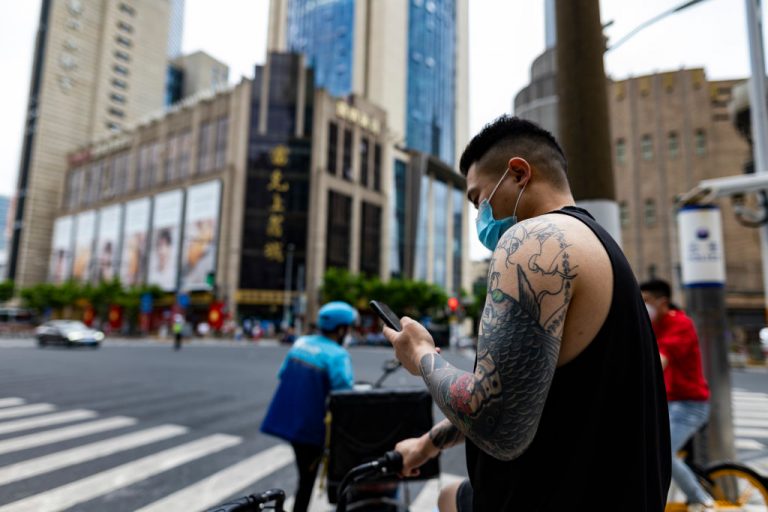On June 6, China’s State Council issued a directive banning all tattoos on minors, and warned any business, individual or organization from providing such services or encouraging young people to get tattoos.
“No enterprise, organization or individual shall provide tattoo services to minors, and shall not coerce, induce or instigate minors to tattoo,” the directive, which takes “immediate legal effect” said.
Late last year, China had banned soccer players from getting new tattoos, and called on players with existing ink to either have them covered up or risk being kicked out of their clubs. Authorities also called on athletes to “set a good example for society,” and told national teams at Under-20 levels that they would be prohibited from recruiting new athletes donning tattoos of any kind.
RELATED:
- China Bans National Soccer Players From Getting Tattoos
- Chinese Censors Blur Western Brands Over Xinjiang Cotton Boycott
- China Deploys Censorship, Police Threats to Maintain Control Over ‘Zero-COVID’ Narrative
The new measure urges institutions and workers from the tattooing and piercing industries to enhance screening in order to properly check how old each client seeking these services is. It further bans the promotion of getting inked at schools and public places, and stipulates severe sanctions for offenders.
“For immature minors, tattoos may be just a whim, something they do in pursuit of individuality, but the harm done is enormous and long-lasting,” the document said, adding that the ordinance seeks to protect minors’ legal rights and ensuring that they are not to “forced, persuaded and induced” to get a tattoo.
Success
You are now signed up for our newsletter
Success
Check your email to complete sign up
The directive also called on “families, the country and its entire society to support the education of new generations, talk them out of getting a tattoo and inform them about the risks for their health,” a report by Radio Free Asia (RFA) said.
Because the directive overrides local law-making, it requires all judicial and law enforcement agencies across different counties and departments to “comply with its provisions without exception.”
In ancient China, tattooing was once a punishment inflicted on convicts, and the practice was frowned upon as it was associated with the criminal underworld. Confucian teachings stress that the body is not to be defaced or mutilated.
But many today, see tattoos as a benign form of self-expression. Speaking with RFA, Taiwanese youth worker Yeh Ta-hwa described the ban as part of Chinese leader Xi Jinping’s authoritarian push “since he took office.”
“He has done so much to restrict the freedom of young people, including banning them from any form of religion under the age of 18, limiting their online gaming time and what content they can view,” according to Yeh. “[All of this] shows that China’s control and monitoring of its citizens’ free will is getting tighter and tighter.”
In recent years, Xi has played up the importance of national culture and “socialist core values,” deploying the force of the Chinese Communist Party to back this drive.
In 2018, in the midst of a campaign against hip hop and other “immoral behaviors,” China’s media regulator issued an edict stating that Chinese television “should not feature performers with tattoos or male actors wearing earrings.”
Images with tattoos were required to be blurred out before they could be shown on TV and in 2019, even men wearing earrings were censored on TV after the authorities determined the aesthetic to be “effeminate and not in keeping with traditional values.”














